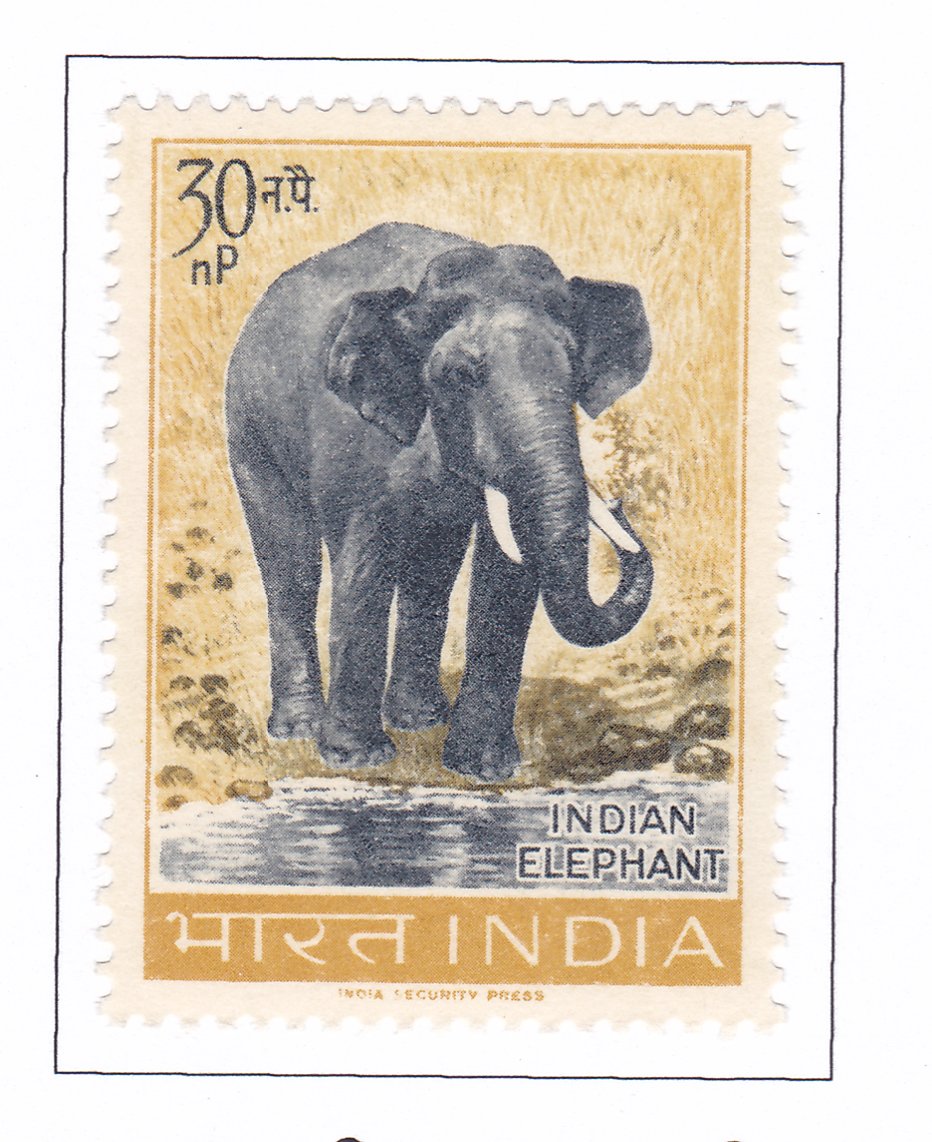Indian Elephant (Elephas maximus)

Technical Data
| Stamp Set | Wild Life Presevation |
|---|---|
| Date of Issue | October 7, 1963 |
| Denomination | 30 np |
| Quantity | 5,000,000 |
| Perforation | comb 13 |
| Printer | Security Printing Press, Nashik |
| Watermark | Asokan Capital Multiple [Up] |
| Colors | Slate | Yellow ochre |
| Catalog Codes |
Michel IN 360 Stamp Number IN 364 Yvert et Tellier IN 150 Stanley Gibbons IN 474 |
| Themes | Animals (Fauna) | Elephants | Mammals |
The Indian Elephant (Elephas maximus) is a majestic and iconic species found across much of India, excluding the northeast and central regions. Its range extends southeastward through Burma and Malaya to Indonesia. Despite the encroachment of civilization and habitat loss, the Indian Elephant remains relatively abundant due to legal protections.
However, the large size of these animals necessitates occasional shooting or capture under special licenses to prevent excessive damage to crops. Indian Elephants are slightly smaller than their African counterparts but are believed to possess considerable intelligence. Female elephants, known as cows, typically lack tusks, while many males, called makhnas, also lack them.
Indian elephants are easily distinguished from their African counterparts by their convex backs, smaller ears, and other physical features. In regions like Madras, Mysore, Bengal, and Assam, wild elephants are sometimes captured using methods like the pit or khedda method. Once captured, these elephants quickly become tame and serve humans in various capacities, including timber extraction and transportation in challenging terrain.
Despite the advent of modern machinery, elephants remain irreplaceable in tasks like lifting and loading timber onto wagons and trucks. Although they do not live as long as commonly believed, with the oldest recorded elephant living up to about seventy years, they possess remarkable memory and learning abilities, akin to that of dogs.
The majestic elephant holds a special place in legend, song, and history, featuring prominently in traditional state and temple ceremonies. Even today, elephants remain popular attractions in zoos and circuses worldwide, symbolizing strength, intelligence, and grace.
